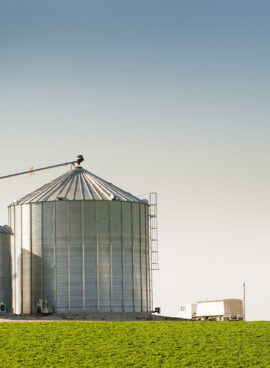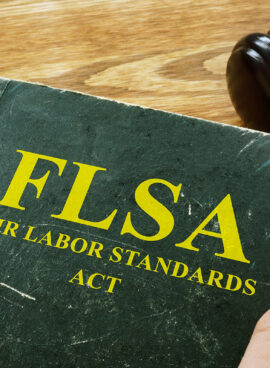Property Damage in Texas under CGL Policies
What constitutes “property damage” that would invoke an insurer’s obligation to indemnify under a commercial general liability (CGL) insurance policy? In TIG Ins. Co. v. Woodsboro Farmers Cooperative, the 5th Circuit for the U.S. Court of Appeals, looking to the Texas Supreme Court opinions in U.S. Metals and Lamar Homes, provided some guidance in construction defect disputes.
Woodsboro Farmers Cooperative (Woodsboro) contracted with E.F. Erwin, Inc. (Erwin) to construct two, 105-foot diameter grain silos. Erwin hired a subcontractor, AJ Constructors, Inc. (AJC), to construct the silo
Employee v. Independent Contractor under FLSA
Who is entitled to protection, including overtime pay, under the Fair Labor Standards Act (“FLSA”)? In Guillermo Gray v. Killick Group, LLC, the 5th Circuit U.S. Court of Appeals recently held that a welding inspector was properly characterized as an independent contractor and not entitled to overtime or any other protections or benefits of the FLSA. How did the Court reach its decision?
Guillermo Gray, a welding inspector, sued Killick Group, LLC (“Killick”) alleging that Killick violated the FLSA by not paying him wages and overtime. The suit was originally brought in state court but
Artificial Intelligence in Construction Quality Control
Artificial intelligence has made large inroads into various aspects of construction management, but has seemingly made less progress with on-site quality assurance and control measures. What research is being conducted on finding non-conformities or construction defects in real-time to avoid expensive, protected litigation after final completion? We take a deep dive.
Reinforcing steel does not scream tech or AI, yet it has received a considerable amount of attention in recent research. To understand why, consider some of the factors and issues concerning installation of reinforcing steel. Stee
Indemnity, Standing and Stowers
What impact does a claim for contractual indemnity have on a Stowers demand? Does paying for a portion of a judgment give standing to an insurer in a subrogation claim for the entirety of the judgment? On appeal of a case we previously reported on, the Fifth Circuit answered these questions in a somewhat surprising fashion.
In 2008, Lake Texoma Highport LLC sued Insurance Alliance for failing to procure the requested blanket coverage to insure its marina, which was damaged by heavy rainfall. Insurance Alliance was insured with a $5 million per claim professional liability policy from Westport
Pot Contract Unenforceable
Is a contract between an employer and employee to pay the employee a $100,000 bonus for delivering a healthy harvest of 1,400 pounds of recreational pot enforceable? The Houston Court of Appeals recently held, no.
In BRCC Enterprises LLC v. Jesse Skie, Skie sued his employer, BRCC Enterprises LLC, for breach of an oral contract made in Houston under which BRCC agreed to pay Skie a $100,000 bonus upon the healthy harvest of 1,400 lbs. of dry cannabis crop. Skie moved from Houston to Oregon and obtained state licenses to work on a marijuana farm. Among other things, he fenced the two-acre plot,
FTC’s Non-Compete Ban Set Aside
What is the status of the Federal Trade Commission’s recent rule banning non-compete agreements as unfair competition? The United States District Court for the Northern District of Texas recently set aside the rule, preventing the rule from taking effect.
As reported in a prior article, Ryan, Inc. and the US Chamber of Commerce filed suit to prevent the FTC’s non-compete ban from taking effect. On July 3, 2024, the Court granted a temporary injunction to prevent the rule from going into effect. On August 20, 2024, the Court granted Ryan’s and the US Chamber’s (now an intervenor in Ryan
Construction Surety Bonds
Surety bonds are an important cog in the construction industry machine, but a topic rife with complexities. Put plainly, a surety bond, whether a payment bond, performance bond, release of lien bond, or appeal bond, generally refers to a three-party relationship that includes a (1) principal (who is purchasing the surety bond to make sure of a performance of an obligation); (2) obligee (who is the party requiring or requesting the bond); and (3) the surety (who is issuing the bond, guaranteeing the principal’s obligations/performance, and if the principal fails to perform, step in to fulfill









